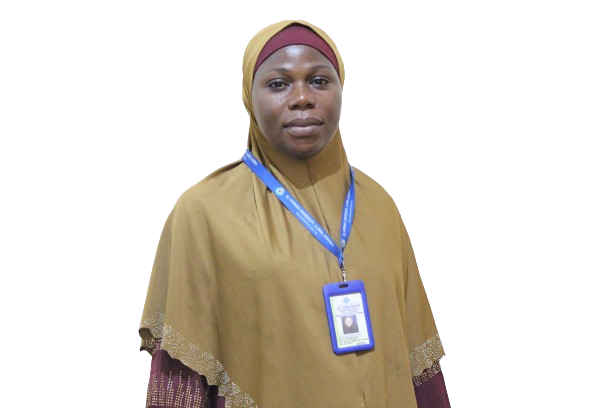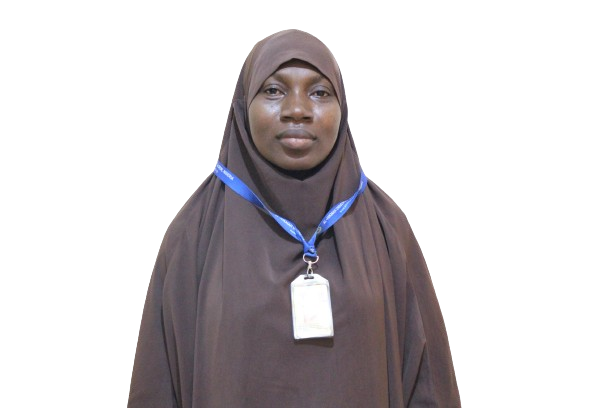HOD’S WELCOME ADDRESS
This Department was established in the year 2018 having realized the need to have capable hands to serve humanity as scholars and practitioners in the field of Medical Laboratory Science in line with international standards. This curriculum has been carefully designed and structured to reflect new developments at local and global levels, to enable the students to be practitioners capable of shaping a better and safer world. The Department is made up of competent, reliable and selfless scholars of national and international repute who have worked assiduously in their careers to also help you shape your future as you begin a new life.
2.1 Philosophy
The broad philosophy of training in medical laboratory sciences are to:
a) Provide sound academic and professional background for the production of Medical Laboratory Scientists who would be capable of working anywhere in Nigeria.
b) Produce Medical Laboratory Scientists who would satisfy internationally recognisable standards and who could undertake further training towards specialisation.
c) Produce Medical Laboratory Scientists with sufficient management ability to play a leadership role and entrepreneurship in employing others, establishing self, and also in training and general practice of laboratory sciences.
2.2 Aim and Objectives
The main aims of the bachelor honours degree programme in Medical laboratory sciences are to:
i) instill in students a sense of enthusiasm for the profession; an appreciation of its application in different contexts (in areas such as general medicine, food and beverages, pharmaceutical industries, utility departments e.g. water corporations; research institutions, etc).
ii) involve the students in an intellectually stimulating and satisfying experience of learning, studying and research.
iii) provide students with a broad and balanced foundation of medical laboratory knowledge and practical skills; performing effectively in clinical diagnostic services, academics and quality assurance; and function independently or in collaboration with other members of the health team in the care of individuals and groups at all levels of health care.
iv) develop in students, the ability to apply their medical laboratory knowledge and skills to the solution of theoretical and practical problems in laboratory medicine.
v) develop in students through an education in medical laboratory sciences, a range of transferable skills of value in medical and non-medical employment.
vi) provide students with a knowledge and skills base from which they can proceed to further studies in specialised areas involving medical sciences.
vii) to generate in students, an appreciation of the importance of medical laboratory sciences in an industrial, economic, environmental, health and social context.
viii) generate students with the ability to produce biological and diagnostic reagents as well as being able to fabricate and maintain laboratory equipment.
ix) empower graduates of Medical Laboratory Sciences with skills that will enable them engage in income yielding ventures.
3.0 Learning Outcomes
- Competencies and Skills
- At bachelors honours level, graduates are expected to have acquired a wide range of abilities and skills; including:
- Medical laboratory sciences related cognitive abilities and skills relating to intellectual tasks, including problem solving.
- Medical laboratory related practical skills i.e. relating to the conduct of laboratory research/work.
- Transferable skills that may be developed in the context of laboratory medicine and are of a general nature and applicable in many other contexts.
- Abilities
The main abilities and skills are as follows:
(i) Laboratory medicine-related cognitive abilities and skills.
- Ability to demonstrate knowledge and understanding of essential facts, concepts, principles and theories relating to the subject areas identified above.
- Ability to apply such knowledge and understanding to the solution of qualitative and quantitative problems in medical laboratory sciences – both of a familiar and unfamiliar nature.
- Ability to recognise and analyse novel problems and plan strategies for their solution.
- Skills in the evaluation development, interpretation and analysis of laboratory results, researches and data, by having an advanced grip and knowledge of information technology.
- Ability to implement good laboratory practice standards.
- Skills in presenting scientific materials and arguments clearly and correctly in writing and orally to different audiences.
- Computation and data processing skills relating to laboratory information and data.
- Ability to evaluate his or her own desires and prospects for a career as an entrepreneur and select his/her own business.
(ii) Medical Laboratory Practice Skills
- Skills in safe handling of laboratory materials, taking into account specific and potential hazards
- Skills required for the conduct of standard laboratory procedures involved in analytical and diagnostic work.
- Competence in planning, design and execution of practical investigation from the problem recognition stage through to the evaluation and appraisal of results and findings – i.e. also including the ability to select appropriate techniques and procedures.
- Skills to operate standard laboratory instrumentation such as that used for laboratory investigations.
- Ability to interpret data derived from laboratory investigations in terms of their significance.
- Ability to conduct risk assessments concerning some laboratory reagents and procedures.
(iii) Transferable Skills
- Communication skills (both written and oral).
- Problem-solving skills, numeracy and computational skills – including qualitative and quantitative information extending to conditions where evaluations have to be made on the basis of limited information, including error analysis, correct use of units and modes of data presentation.
- Information retrieval skill e.g. on-line computer searches, also other information sources; other information technology skills–word processing; data logging and storage, internet communication.
- Interpersonal skills, fine management and organizational skills – relating to the ability to interact with others and to engage in team-working, ability to plan and implement efficient and effective modes of working.
- Study skills needed for continuing professional development (CPD).
(c) Behavioural Attitudes
Graduate of this programme would have been well equipped with sound professional ethics for the profession of Medical Laboratory Sciences including good reputation and fulfilment of professional role with integrity; refraining from its misuse to the detriment of patients particularly in respect to health and safety as well as information confidentiality and general responsibility; discipline and the use of reason, personal relationships – inter and intra professional; Act of good faith, value judgment, skill and care, with well-being of patients. Graduate of this programme shall be conscientious in all his undertakings.
4.0 Admission and Graduation Requirements
To be admitted into the B.MLS programme the candidate must meet these entry requirements. There are three different pathways by which candidates can be admitted into the programmes in the discipline: the Unified Tertiary Matriculation (UTME), the Direct Entry, and Inter-University Transfer.
4.1.1 Unified Tertiary Matriculation Examination (UTME)
The minimum academic requirement is credit level passes in five subjects at Senior Secondary School Examination (SSCE); including English Language, Mathematics, Physics, Chemistry and Biology at not more than two (2) sittings and an acceptable pass mark at the Unified Tertiary Matriculation Examination (UTME) conducted by the Joint Admission and Matriculation Board (JAMB) in the year.
4.1.2 Direct Entry
Candidate seeking admission through this mode should in addition to the UTME requirements possess:
a) Medical Laboratory Technician (MLT) certificate being awarded by Medical Laboratory Science Council of Nigeria (MLSCN).
b) Higher School Certificates or Advanced Level of General Certificate Examination or its equivalent with credit in Physics, Chemistry and Biology or Zoology.
c) An acceptable First Degree in relevant Biological Science Disciplines such as Microbiology, Physiology, Anatomy, Biochemistry and Zoology; as may be approved by the Senate.
d) Higher National Diploma (HND) in related field, as may be approved by the Senate.
e) Candidates with relevant prerequisites may transfer from another programme of this university to the BMLS programme; as may be approved by the Senate.
4.1.3 Inter-University Transfer Mode
Students can be transferred/admitted into 200-Level courses provided they have the relevant qualifications and the requisite CGPA.
5.0 Programme Duration
The duration of this course is five (5) academic sessions for UTME candidates and four (4) academic sessions for the Direct Entry candidates, with mandatory laboratory postings during semester brakes.


